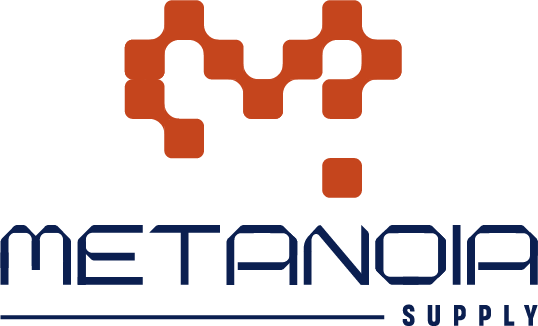Sustainable supply chain
- articles
- Sustainable supply chain

- admin
- August 3, 2020
- No Comments
Sustainable supply chain
Sustainable supply chain is the consideration of social, economic and environmental issues in all organizational processes. These processes include the entire life cycle of the supply chain, from the purchase of raw materials to product design and development, warehousing, distribution, and delivery of the final product.
In fact, supply chain sustainability is a business issue that affects the organization’s supply chain and organizational logistics network based on environmental factors, risk and production waste management. A significant growth has emerged in the field of need for the integration of environmental activities with supply chain management of the organization. The new approach that has dominated operations management in recent years is the supply chain sustainability approach
The meaning of sustainability is to focus on the long-term effects of the company’s activities and the sustainability of resources for future use at the same time as today’s profitability. In the literature of organization and management, sustainability has become a vital tool that guarantees competitive advantage and social responsibility. Now the sustainability suffix has been added to many organizational topics. Sustainable supply chain is also one of these topics that is closely related to the concept of green supply chain. These concepts emerged to emphasize the importance of social and environmental concerns along with economic factors in supply chain planning. In this article, it has been tried to introduce the concept of supply chain sustainability in production and operations management almost completely
Sustainable supply chain and green supply chain
In the organizational supply chain literature, the concepts of sustainable supply chain and green supply chain management are usually used interchangeably, but these two concepts are slightly different from each other. Sustainable supply chain management includes economic, social and environmental sustainability. Therefore, this concept is broader than green supply chain management. In other words, green supply chain management is a part of sustainable supply chain management. During the last few years, the emergence of new technologies and the creation of huge changes in global markets have made it necessary to pay attention to this category. Different organizations have to use sustainable supply chain management theories to create and maintain their competitive position
Factors affecting supply chain sustainability
SSCM is sometimes referred to as closed-loop supply chain management or green supply chain management. Closed-loop supply chains are those in which items are taken care of when they are no longer desirable or can no longer be used. A closed loop supply chain consists of a forward chain and a reverse supply chain.
In the forward structure, the network includes three levels of suppliers, factories, and distribution centers, and in the reverse, it includes three levels of collection, repair, and scrapping centers. Forward chain raw materials are transformed into new products and distributed and used by customers. In a reverse supply chain, used products are recycled and reused, repaired or manufactured
Definition of sustainable supply chain management
Sustainability is the use of resources to meet the needs of the present generation without jeopardizing the ability of future generations. Sustainability is increasingly evaluated, pursued and supported by politicians, the press and human rights activists.
The supply chain is also a network of facilities and distribution authorities, which is responsible for the procurement of materials and materials, delivery of these materials and goods to intermediaries, and distribution of the final product to consumers.
The management of the flow of materials, information and coordination throughout the supply chain, taking into account the three economic, social and environmental dimensions, is called a sustainable supply chain.
Supply chain sustainability refers to the transparent integration and achievement of social, environmental and economic goals of organizations with the effective coordination of intra-organizational processes. Key aspects of implementing sustainable supply chain management include the sustainability of the supply chain network and supply chain environment, the application of environmentally friendly strategies, and the full acceptance of social responsibilities. Therefore, by considering sustainability in the supply chain, in addition to considering financial profitability, adverse environmental effects and adverse social effects can be minimized
Importance of supply chain sustainability
In the past, most organizations under-managed their supply chains. Instead, they tended to focus on their own operations and on their immediate suppliers. However, several factors make supply chain management desirable for business organizations that actively manage their supply chains.
During the last decade, many organizations have implemented activities such as lean manufacturing and total quality management. As a result, they will be able to achieve improved quality while reducing a large amount of costs. Remove excess from your system. Although there is still room for improvement, the opportunity now exists mainly in procurement, distribution and supply chain support.
Concerns about environmental laws and pressure on manufacturing organizations to reduce the environmental impact of their activities have intensified since the early 1920s. Laws are one of the most important sources of pressure on organizations, pressure on the supply chain is one of the mechanisms to achieve this goal. Sustainability in the supply chain as a new and very influential sector has attracted the attention of researchers in the field of supply chain management. In addition to academia, societies, governments, international agencies and non-profit organizations have increasingly addressed this issue. Sustainability has become an important issue for companies that consider social and environmental issues in their strategies
Elements of supply chain sustainability
The key elements of supply chain management can be reviewed and discussed. The first element, that is, customers, is the motivating element. Usually, marketing is to determine what customers want and predict the amount and timing of customer demand. The design of the product and service is consistent with the customer’s needs and capabilities. Processing in any part of the supply chain is the central focus of any organization. A major part of the processing takes place in the organization that produces the product or service for the final customer.
Inventory is a fundamental factor in most supply chains. The main goal is balance in the inventory level. Too little inventory causes disruptions and delays in the schedule, and too much inventory adds to unnecessary costs. Purchasing is the communication factor between an organization and its suppliers. This task is to acquire goods and/or services that are used to produce products or provide services for the organization’s customers. Purchasing selects suppliers, negotiates contracts, builds alliances, and acts as a liaison between suppliers and various internal departments.
Proximity to the market or proximity to sources of supply, or proximity to both, may be possible. In total quality management (TQM) benchmarking refers to the evaluation of the position that the company currently contracts and uses. Use it as a guide to where the company wants to be in the future. However, a company should evaluate performance and set overall goals in terms of the entire supply chain, not just the company itself.
Strategic, tactical and operational issues
Since the supply chain of a company includes all the functions and operational facilities of the company, its design is necessarily a complete part of the company’s strategic planning process. For most companies, the same strategic plan goals or supply chain management goals are active and reliable delivery of high quality goods and services at minimum cost. Doing this requires strategic design decisions that effectively manage all supply chain functions. coordinate Not surprisingly, many of the same strategic design considerations for a quality management program can be applied to supply chain design.
The main part of the strategic planning process is to determine the goal or goals. In supply chain management, the goal or goals are. Again, what is important and vital.
A useful tool for identifying and reducing uncertainty is to strategically apply the principles of total quality management, including statistical process control throughout the entire supply chain.
This means that suppliers use total quality management to ensure the quality of products that are delivered to customers on time, and distribution centers (DISTRIBUTOR CENTER) use total quality management to ensure that products to be processed, packed, moved and sent on time without any processing errors, and the shippers are employed to deliver the products to the right place and on time without risk.

Latest Articles
Sustainable supply chain
- 3 August 2020
- No Comments
Application of all kinds of ferroalloys
- 3 August 2020
- No Comments
Reframertiub and its applications
- 3 August 2020
- No Comments
Category Articles
Latest projects
Sustainable supply chain
- 3 August 2020
- No Comments
Application of all kinds of ferroalloys
- 3 August 2020
- No Comments
Reframertiub and its applications
- 3 August 2020
- No Comments




